
A friend pointed this out recently as yet another reason to spend time and effort exploring the public land we citizens own and private land enrolled in states’ walk-in hunting access programs.
But there are plenty of other reasons to check out such areas including price (free), availability (millions of acres) and prime habitat (sometimes).
So how do you exploit these treasure troves to ensure your success? Here are a handful of tips on making the most of publicly accessible land and some reasons to try them.
Plan Ahead
Most states publish both hard copy booklets and online versions of their maps around August, once all the rental deals with landowners are consummated. Google “walk-in hunting” and the state you are interested in, and you’ll likely find a link to the information. Many states also publish updates just before hunting seasons open, so be sure to double-check.
Spend considerable time studying those maps to select your base of operations and consider selecting it based on the concentration of nearby walk-in areas. Study Google Earth, too, and you’ll have a better feel for the lay of the land, terrain, crops and cover. Book your lodging early: Many areas have few, if any, hotels or RV parks.
Make Contact
Call the agency that administers your chosen area and talk with the local biologist or game warden. They might clue you into the better areas, time of year to hunt each and current conditions. The earlier you call, the more likely you are to reach an unharried, cooperative, potential friend in the agency. Ditto for chambers of commerce and visitors’ bureaus.
This story is from the {{IssueName}} edition of {{MagazineName}}.
Start your 7-day Magzter GOLD free trial to access thousands of curated premium stories, and 9,000+ magazines and newspapers.
Already a subscriber ? Sign In
This story is from the {{IssueName}} edition of {{MagazineName}}.
Start your 7-day Magzter GOLD free trial to access thousands of curated premium stories, and 9,000+ magazines and newspapers.
Already a subscriber? Sign In

Tail feathers - STANDARDS AND PRACTICES
\"An armed society is a polite society,\" the NRA says in one of its dicta, cribbed from Robert A. Heinlein, a 20th-century American science fiction writer.
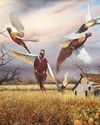
Day's End - IN PRAISE OF FENCEROWS
Driving north along the Hudson River, I gazed at a pastoral autumn scene: sere fields of faded yellow harvested corn, stubbly and broken amongst the clods of black earth, almost smooth from my vantage point. Spiky brown veins of wild growth marked barriers between plots. Occasionally, the gray bones of a mature oak rose among the brown shrubs to stand over the yellow fields. A sentry, keeping silent watch as white frost crystals slowly melted into invisibility.

That Time of Year Again
Without doubt. The most idyllic form of hunting in Ohio is seeking the woodcock. - Merrill Gilfallan, Moods of the Ohio Moons: An Outdoorsman's Almanac (1991)
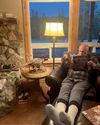
I Don't Wanna'!
I'm an old hand at being retired, though - have been practicing for 25 years.
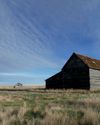
Hunting the Huns: Alberta's Big Sky Country
The prairies of southern Alberta are vast, beautiful and full of prime bird habitat. Crop fields are interspersed with abandoned farms, rolling hills are intersected by coulees and creek beds, and Hungarian partridge and sharptailed grouse occupy some of the best and most picturesque habitat on the continent.
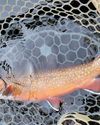
Side Dish - End of Season
Sporting trips are not only about sport, as many other experiences are discovered alongside. And my trip to Lakewood Camps in Maine was certainly just that.
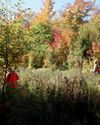
AN EXTENDED STAY
There is no reason to leave Michigan in the fall unless the opportunity of a cast and blast adventure at a historic sporting lodge in Maine comes calling.
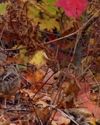
KEEP IT HANDY
If you think shooting a ruffed grouse on the wing with a shotgun is tough, try shooting one in flight with a still camera.
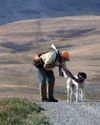
A Longtime Love Affair
It's possible to hunt your favorite birds in a lot of different places, I suppose, but I don't do that.
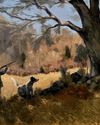
Profile of an Artist: Harley Bartlett
Harley Bartlett was born in 1959 near Pittsburg, Pennsylvania. However, having lived in Rhode Island for most of his life he considers himself a Rhode Islander.